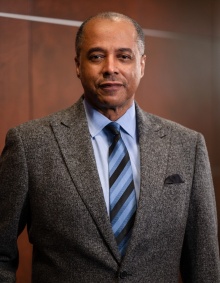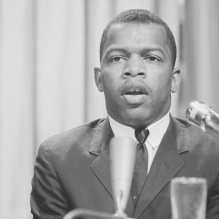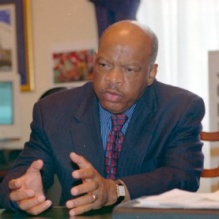Dean’s Column

Dear Alumni and Friends,
“Get in good trouble, necessary trouble.” — Rep. John Lewis
Lately I’ve been thinking about the late John Lewis, who risked his life and was arrested more than 40 times advocating for civil rights. From speaking at the March on Washington to leading hundreds across the Edmund Pettus Bridge on “Bloody Sunday” to supporting key legislation and voter registration drives during his decades in Congress, Lewis never considered his work to be heroic. To him, it was just necessary to move our nation — our society — toward justice.
Like some of us, Lewis could point to Buffalo and a formative experience he had here that set him on this historic path. When he visited here from Alabama at 11 years old, he said it was the first time he had experienced a desegregated society. “Going to Buffalo was when I realized that we live in one house as Americans and as humans in this world,” Lewis wrote. We know communities across our country are always evolving, and good trouble means upholding human rights and championing the needs of those who are disenfranchised.
The past few months have been unsettling, with rapid changes that may have implications for our profession and the countless populations we serve. But as social workers, we understand better than most that if our shared “house” has a crumbling foundation, it hurts all of us, especially the most vulnerable. As Dr. Martin Luther King Jr. said, “Injustice anywhere is a threat to justice everywhere.”
Every day, I’m inspired by our school community and the good trouble our students, alumni, faculty and staff make through their efforts to advance the dignity and worth of humankind. In this issue, you can read a few examples: how a faculty researcher plans to train social workers in terrorism prevention; how four students are sharing resources through their podcast on intimate partner violence in the Black community and how the concept of tree equity inspired a recent graduate’s research.
As always, thank you for supporting the School of Social Work and our mission. Our necessary work continues together.
In camaraderie and solidarity,
Keith A. Alford, PhD, ACSW
Dean and Professor


Rep. John Lewis pictured at a 1964 meeting of the American Society of Newspaper Editors in Washington, D.C, and in his congressional office in 1999. Photos courtesy of the Library of Congress.